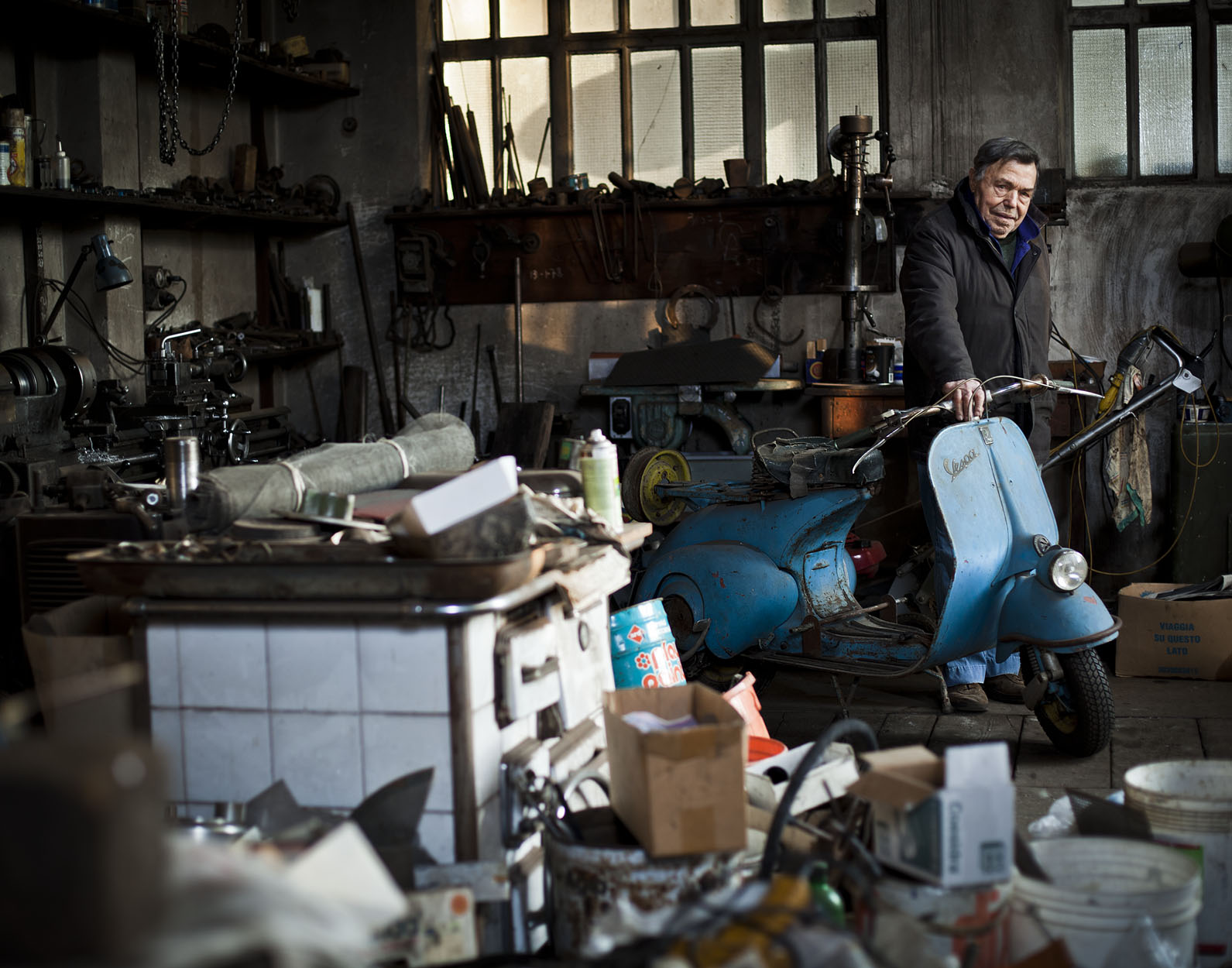I was born on March 28, 1927, a few months after Charles Lindbergh flew across the Atlantic Ocean. I spent most of my childhood in Northeastern Italy, in a small village just 20km from Udine. My parents worked on a farm. I attended a school where all the farm children went. It was never interesting to me. From an early age, my interest was in engineering, but I could only attend a technical school once the war ended.
I must say, I didn't care for the war. I didn't support either side, despite being Italian. I was interested in aviation. I was fascinated by how precise everything had to be in order to operate a machine as complex as an airplane.
There were a lot of air battles around Udine between Americans and Germans, Italians and Americans, between factions of the Italian army. After September 8, 1943, Udine went under German administration and we were bombed a lot, mainly by the Americans. I always got excited when a plane was shot down, so I could go explore it. I would rush over to the site of the crash and tried to recover whatever parts I could. I would take them home where I had a small workshop, where I dismantled and reassembled all the parts I found.
Italian partisans carried out some attacks in my village in 1944. They came to our house one night. I was frightened and didn't know how to deal with them. They were suspicious of the German presence in the village. But the Germans stationed there were mostly engineering and construction staff, and worked on building runways in the surrounding areas. You see, this location is a convenient distance from Munich, Slovenia and Monaco. They wanted to search the house. My father got into an argument with them because he didn't want guns in the house. They searched and didn't find much - my father once had a rifle, he was a hunter, but it was confiscated by the Germans after they'd come through the village.
I found work as a mechanic in a nearby village. Two Germans ran the shop. One specialized in engines and the other was a general smith. Three others worked for them. They were very kind to me, and very keen to teach me. I helped German soldiers repair their trucks and tanks. I also worked on the airfield. I am still thankful to them for setting the foundation for my future career. I was interested in the work, not the politics. The Germans were here and we had to live with it. Many people understood that fighting them wasn't worth it. But of course, many people also resisted. My brother worked with partisans and I was unaware. He had a radio transmitter in the attic of our home and no one knew.
In the spring of 1944, Todt, a German organization, began working on a project nearby. This organization basically existed to coordinate large engineering projects around Europe at that time. Of course, that late in the war, most of the projects were now dedicated to defending Germany. There were plenty of trucks and tanks, all kinds of necessary machinery, but there weren't enough people to work on them. So they asked the locals. People came from all around - some from Padua, from Treviso, Pordenone, Frioli, Udine. There were so many they had to build barracks to host the workers that arrived. Even my brother worked for the Germans for four or five months. I remember some locals were displeased because their horses and cars were confiscated for transporting dirt and cement to build runways.
Some runways were already functioning in full, in Gemona and Risano, some other villages around Udine. Usually German planes took off in the evening to bomb around Bologna, in Central Italy. They would return, having to land at night or early in the morning, when it was extremely difficult to see the runway. There were many incidents when bombers crashed after missing the runway. Lots of German pilots died that way.
By autumn of 1944, the Americans attacked so often and intensely that German troops began to withdraw. Construction stopped. They just left everything behind - empty runways, abandoned mines, construction sites.
One night, American planes bombed our area. I stood on the roof to watch it. One of the trains on the railway exploded. I think it was carrying tanks or some sort of heavy machinery. This was fun for me, because of the explosion and the fireworks, the flare from the blast. That's what it was for me at the time, a kind of entertainment and excitement. I had no idea what war really was, I didn't understand the scale of what was happening. I never thought the Wehrmacht occupying our village was a bad thing. I was always fascinated by their technology, and I didn't mind working with them for the sake of playing and studying these machines.
After the war ended, in a year I joined the army and went into aviation mechanics. I passed the tests with flying colors. After that, I attended a mechanical design school. Not only because of my interest, but because times weren't easy for my father's farm. We needed machines to farm more efficiently. I wanted to learn how to design them.
I almost emigrated to the United States because I couldn't find work. There was a committee working and interviewing people who wanted to work in America. They asked me what my profession was. I told them I was a mechanic. I was asked to show them my hands. I hadn't worked for several weeks and my hands were clean. They thought I was lying and I didn't get to go.
I worked hard all my life on things I truly love. I am proud of my family, my faith - I'm a Catholic - and last but not least, I am proud of my craft.
